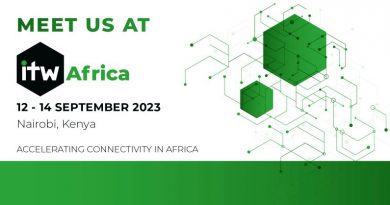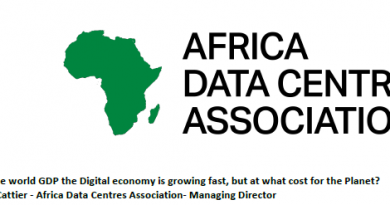The African Code of Conduct: leading Africa towards sustainable data centre growth
As digital transformation accelerates across the continent, Africa’s data centres are emerging as critical infrastructure hubs fuelling economic growth, innovation, and connectivity. However, this rapid expansion brings with it significant challenges — most notably the rising energy consumption and environmental impacts associated with data centre operations.
Recognising these issues, the African Data Centre Association (ADCA), in collaboration with regional stakeholders and under the auspices of Smart Africa, is pioneering an ambitious initiative: the development of a regionally tailored African Code of Conduct (CoC) for data centres.
Addressing critical challenges
The primary motivation behind the African CoC is to manage and mitigate the increasing energy demands of data centres — a concern that not only affects environmental sustainability but also economic efficiency and energy security.
“The Africa Code of Conduct Plan is a cornerstone of our commitment to sustainable digital growth. By empowering data centre operators and suppliers to voluntarily improve energy efficiency, we’re not only reducing emissions — we’re building a resilient, future-ready infrastructure that attracts green investment and drives inclusive development across the continent,” says Paul-Francois Cattier, Managing Director, Africa Data Centres Association.
“As Marketing Manager, I’m proud to amplify the vision of the Africa Code of Conduct Plan. My mission is to connect, engage, and inspire our industry to embrace voluntary energy efficiency — not just for sustainability, but for economic strength and global recognition. Together, we’re turning responsible operations into green opportunities,” adds Mary Kariuki, Digital Infrastructure Consultant, Africa Data Centres Association.
By establishing a set of best practices specific to Africa’s unique environmental and market conditions, the initiative aims to reduce environmental impacts through energy-efficient operations; enhance economic sustainability by promoting cost-effective energy management; strengthen energy supply security amidst fluctuating regional power availability; and position Africa as a leader in green, energy-efficient data centre solutions, leveraging its potential to ‘leapfrog’ traditional development pathways and adopt cutting-edge, sustainable technologies.
The African CoC aspires to be more than a regional guideline; it aims to inform, stimulate, and elevate the standards of data centre operations across Africa. Its core objectives include driving energy efficiency in data centres without compromising their mission-critical functions; creating a performance benchmarking framework that enables operators to gauge and improve their practices; and fostering innovation in green energy solutions, positioning Africa as a pioneer in sustainable data centre infrastructure.
To ensure the relevance and effectiveness of the African CoC, the initiative will draw heavily on the EU Code of Conduct (EU CoC) for data centres — an established, voluntary framework that offers a comprehensive set of best practices, metrics, and reporting standards. The EU CoC has been instrumental in promoting sustainable practices across Europe, and its principles will serve as a guiding template, adapted to African realities through a collaborative and iterative process.
“As Managing Director of TelecityGroup at the time, I was among the first to become a Participant in the European Code of Conduct,” notes Stephane Duproz, Board Member, Africa Data Centre Association. “The benefits far exceeded our expectations: we achieved significant financial savings with returns on investment in under a year. Moreover, by encouraging our suppliers to become Endorsers, we created a virtuous circle, fostering a more conscious and resilient ecosystem around us. The upcoming Africa Code of Conduct — developed by the African data centre industry community — will help us save years in building the modern, responsible, and future-ready data centre capacity that Africa needs for its digital development.”
Implementation roadmap
The development of the African Code of Conduct (CoC) will unfold through a structured, multi-phase approach marked by several key milestones.
Initially, during the first quarter of 2025, the project focused on securing official endorsement from the European Commission’s Joint Research Centre (JRC), which will provide vital validation and support. Concurrently, governance structures will be established, led by Smart Africa and supported by the African Data Centre Association (ADCA), to oversee the project’s strategic direction and implementation.
The project moves into the pilot stage in June. During this period, pilot initiatives were launched across four African data centres, carefully selected to represent both French-speaking and English-speaking regions. These sites include Digital Parks Africa, Africa Data Centre in South Africa and Kenya, PAIX Data Centre in Ghana and Kenya, and Sin Togo. The purpose of these pilots is to evaluate how existing EU CoC best practices — covering metrics, data collection, and governance — can be adapted and tested within the African context.
As the pilots progress, from the second quarter through the fourth quarter of 2025, a Stakeholder Working Group will be formed. This group will comprise local industry players, regulators, and technical experts, working collaboratively to analyse pilot data. Their aim will be to refine and tailor best practices, metrics, and reporting schemes specifically suited to Africa’s unique environmental conditions, energy sources, and market dynamics. The insights gained will directly inform the development of an Africa-specific version of the CoC, ensuring relevance and practicality.
The culmination of these efforts will be the official launch of the African CoC in November 2025, which will take place at the Africa Tech Festival in Cape Town. This event will mark the formal adoption of the region-specific guidelines, signalling a significant step forward in Africa’s pursuit of sustainable, energy-efficient data centre operations.
Throughout this process, testing and evaluation will serve as a continuous feedback loop, allowing the project team to assess the effectiveness of the pilot projects. These evaluations will focus on metrics, data collection processes, and governance models, with the goal of creating a comprehensive governance framework and reporting scheme that align with regional needs. This framework will emphasise transparency, accountability, and ongoing improvement, laying the groundwork for sustained progress in energy efficiency and environmental stewardship across Africa’s data centre industry.
The broader vision
The African Code of Conduct for data centres is more than a regulatory document; it is a strategic blueprint designed to steer the continent toward a sustainable, energy-efficient digital future.
Through collaborative effort, regional customisation, and a forward-looking approach, Africa is poised to become a trailblazer in green data centre innovation — driving economic growth, environmental stewardship, and technological leadership for years to come.



